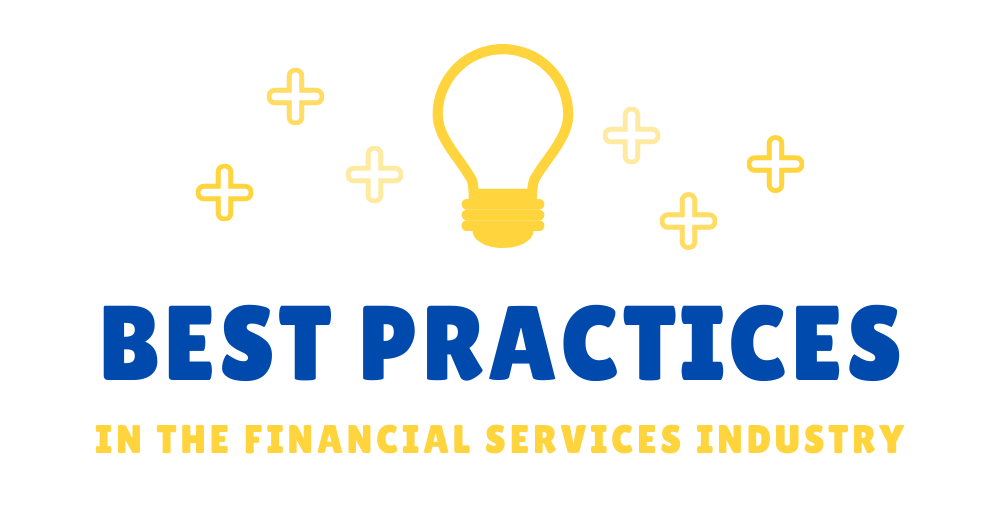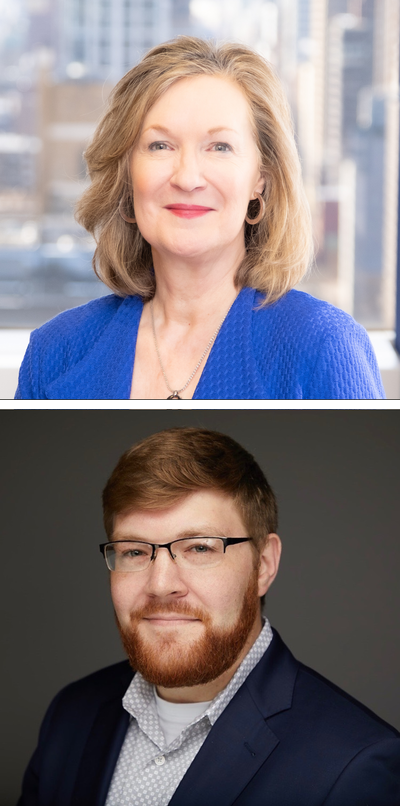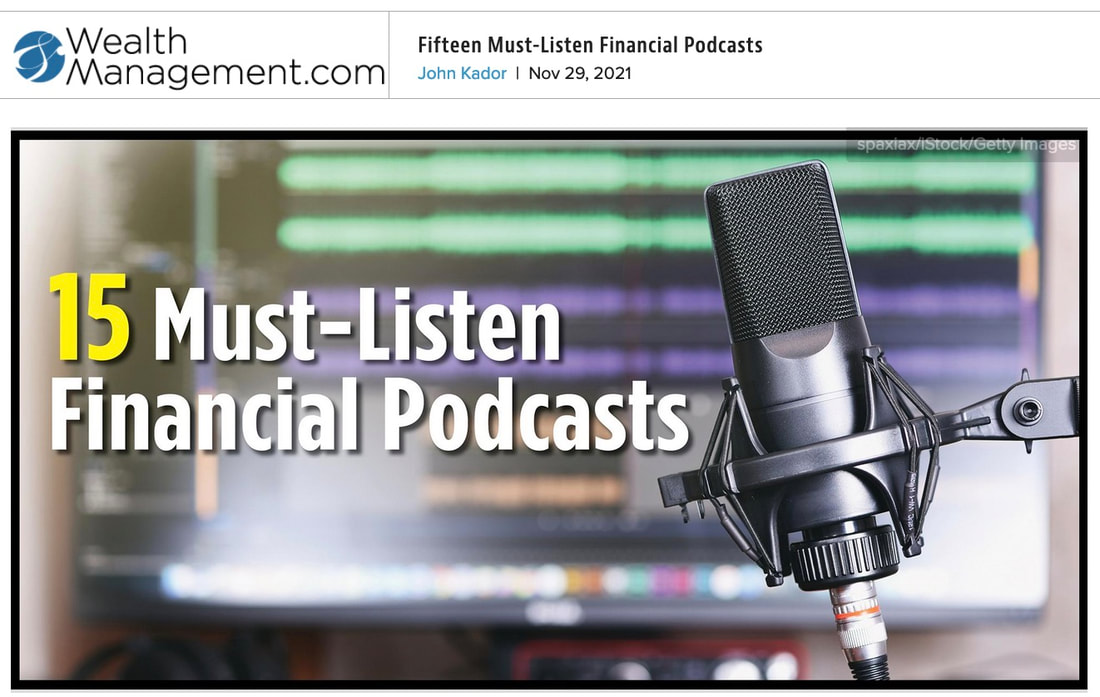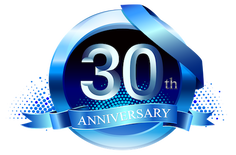|
It’s always exciting to spend time with a visionary like David Lyon, founder and CEO of Oranj, an impressive free wealth management platform for advisors. David’s insights into the financial services industry are based not only on innovative research and all the tinkering and creation that comes with building a digital solution for advisor, but also a decade of experience as an RIA serving his own clientele in Chicago as well. His client-centric approach to fintech sets up some commonsense strategies that can help to protect and grow any independent financial advising business. Speaking with David was a real pleasure.
A transcript of the interview is posted below.
Marie Swift: Hello everybody and welcome back to the Best Practices in the Financial Services Industry podcast and blog. This is your host, Marie Swift. I'm joined today by David Lyon. David is the founder and CEO of Oranj, and Oranj has a really cool wealth management platform that can help independent advisors take their business and their client experience to the next level. David, thank you so much for being here with me today. David Lyon: Thank you, Marie, for having me. Swift: So, one of the things that I was laughing about as we got ready for this call is this meme that's been on Twitter that kind of points to this problem that advisors have – where they are so busy doing the “day-to-day” work of their business that they don't have any time or energy left over to climb out of that foxhole, look at their business as a whole, and to find the right technology and support staff to do everything that they need to do – to really become that best practice advisor, to really work on that client experience. I know that you've been an advisor in the past. Coming from an advisory role into being a software innovator and disruptor gives you a very unique perspective. Maybe you could just share a little bit about what that's really like to be in the trenches. I know you've walked in those moccasins. Lyon: I certainly have. In fact, I think I still have that problem in my business today and in my everyday life. I moved from being kind of an active advisor to being in the fintech space, serving advisors. But, I'm still a business owner and I still battle getting pulled into that foxhole every day. I think if you take a step back and look at things objectively, being an advisor is really no different than being a business owner in any other industry. When you think about a vision for the future it's interesting because that vision really sets the tone for how disciplined you are at executing the everyday things that you have to do in order to run your business successfully. Two issues are actually driving the demands of today's advisors. First, there's a tremendous amount of innovation that's going on in our industry right now. And a lot of that innovation is being driven by larger institutions. Try to think about innovation centering around business models, technology, pricing structure, those kinds of things. If you look at it from that perspective, there are many areas where advisors can adapt and apply these innovations to their own firms, incorporating what will be most impactful and meaningful for their businesses. You know, you really don't have to look much farther than what's going on with the retail side and wirehouses, where the larger institutions are eliminating trading costs. There are zero-fee ETFs coming out with all kinds of new technology to give investors an advisor-less experience. Personally, I don’t believe that is the way the industry is going. If you examine their initial business models, these places were designed to be automated advisors, and now they're promoting that they have human advisors (because they know that that's what people want). I do think that advisors need to be careful as they tend to fall down a rabbit hole in in this particular area because there's so much to do. There are so many different opportunities that they have in the advising industry. It can be challenging to balance that. Balancing all of your day-to-day responsibilities along with the bigger visions of where you want to take your business – and how to adapt and apply what you're seeing. The second thing right now that’s increasing the demands of advisors today is their clients. Clients’ needs have increased due to a lot of different things, I think, in this area. One is the growing needs of Baby Boomers. Their financial lives are becoming more complex now, just as they're in retirement or they're nearing retirement. I also think that all of the experiences that clients are having, outside of their experience with their financial advisor, is raising the bar for the type of service experience that they expect. So, there's a kind of a situation that's been created for advisors today, where they have to do more with the same. They also have to pick the path of how they want to grow their business – how they want to evolve and how they want to empower their business to evolve with them. So, I think those are kind of the two main areas where there have been a lot of demands driven by advisors, again, not totally unique to their industry. I think most other industries are experiencing this as well. I think sometimes it's just finding the time to step away from your business to be able to reflect on it and not be in the trenches as much. ACCESSIBILITY, CONVENIECE AND CUSTOMIZATION Swift: You bring up a lot of good points, and I'm a small business owner myself so I can relate to that need to balance all of these elements: to be the leader of the firm and to ultimately be focused on the client value. So, let's talk a little bit about the changing client perspective and what they're seeing. You mentioned the forces at work. You know, where clients are feeling this more modern experience from some of their other service providers. How can advisors get their arms around that and what kind of technology should they be thinking about to really move them up to that more modern client expectation? Lyon: Sure. Clients expectations are being set, as I kind of mentioned earlier, just by the types of experiences that they're having with other service providers. That could be Amazon, Netflix, Uber, you name it. They're setting the bar that every other service provider has to live up to today. And so, we’ve got to look at the underpinning. Does it mean that advisors need to have an interface and a menu like Netflix does or Amazon? No, they don't. I do think advisors have to live up to the three core tenants of accessibility, convenience and customization. When you think about what type of technology advisors can apply to do a better job of that (and I don't think that there's one single piece of software that does that) but if you stand back and you think about things like, how are other businesses using social media? … they're using social media not just as a promotional tool but also as a customer service tool. When a customer of, say, Southwest Airlines, puts something out on Twitter, there's going to be someone from Southwest Airlines customer service/media support team, (whatever they want to call that) responding to that person and solving their problem. So, that is the level of expectation that people have today. There are all kinds of cost-free options out there that can help advisors do abetter job of being accessible, being convenient and providing their clients with a customized experience, particularly, in the independent advisor space. It's something that we talk a lot about at Oranj: Why are investors hiring advisors? I think more specific to what we really focus in on is: Why are investors hiring independent advisors? It's really because they want to have a personal relationship with somebody that's guiding them and helping them with their investment management and wealth management needs. They want to have some level of customization. People don't want to just walk through Door A, B or C and be given a “cookie cutter” kind of solution. They want a higher level of service and so I think that accessibility, convenience and customization are the three core tenants that advisors need to think about when they're looking at technology as a component to add value to their business and ultimately to their clients. MOVING TO A CLIENT-CENTRIC VISION Swift: I know that you did some research in partnership with InvestmentNews and their research team and a couple of different “Aha” moments came out of reading those two papers. I think one was called Digital DNA 1.0 and the other one was Digital DNA 2.0. But in those, I think we became aware that there were some disconnects between what advisors might be thinking is important to their clients and what the clients actually think is important (or what they really want). And that ties over to the software survey that Bob Veres and Joel Bruckenstein recently fielded and put out at the 2019 T3 Advisor Conference. So, could you just talk a little bit about what you think investors and clients want, and how advisors can be doing a better job of syncing that up for their practice management as well as client expectations? Lyon: There were so many things that I think were “Aha” moments for us with that research. But you know, I think the overarching thought is that we are starting to connect the dots with some of the InvestmentNews research we’ve partnered with over the past couple of years. We’ve really mapped that along with the research that we're seeing in other publications, like what Bob Veres and Joel Bruckenstein have put out, among others as well. I think there's a focus in our industry where we think about technology as “a stack.” That’s one way to look at it, right? You need a certain set of tools to run your business and you need to check some boxes. But I think where we're moving is to more of a client-centric journey. It's got to start with the client and then you need to ask yourself, “Is this is the journey that I want to create in my business?” And then ask, “What tools do I need to use to support that journey?” That way of thinking goes from front office to back office, back office to front office, middle office. I think that's an important distinction because there are different focuses with a lot of the research that's out there in the industry. There's not as much focus on, “Let's start the research with the end client and work backwards from there.” Right? But that's ultimately what's going to move the needle for any advisor’s business. And we hear it every day in our interactions with advisors. “I’ve got to check this CRM box. I’ve got to check this account aggregation box.” We all know those are important tools to have, but how do they support the journey that you want to take your clients through? (This also includes all the back-office work that advisors do for their clients behind the scenes.) So, that's been somewhat our thinking, as we approach those types of research opportunities. We were really lucky to partner with InvestmentNews on our initial Digital DNA white paper about two years ago, back when InvestmentNews was still part of the Crain’s family of publications, so we were actually able to leverage the Crain’s network to get research results on over 250,000 high-net-worth individuals for some of the surveys that we did. One of the most interesting take-aways from that research was finding out what technology clients really wanted from their advisors. And account aggregation was the number one rated benefit that investors wanted when it came to technology. And when we surveyed advisors through the InvestmentNews network as well, they also rated account aggregation as the number one benefit from technology. So, the client’s needs were lined up with the advisor’s needs. But when you look at other technology surveys out there, it's a little bit misaligned. Their advisors aren't thinking about account aggregation (or else other research providers aren't thinking about account aggregation as actually a piece of software in their stack). I think that's why when we try to talk to our advisors every day, we're trying to encourage them to not think about technology in a stack, but instead to think about the type of experiences and service that they want to provide, and then ask themselves, “What are the features that are going to be able to provide that type of value to the journey that we want to create for our clients?” 
AWARD WINNING ACCOUNT AGGREGATION
Swift: Interesting. Now, last year in 2018, I know that Oranj received an award at the Wealth Management Awards Gala and Dinner and that was around account aggregation. So, your account aggregation is award-winning. Could you talk a little bit about the way that Oranj approaches account aggregation? Lyon:Yes, I think account aggregation is not just about bringing over investment accounts or checking accounts. It's about what that value is to the investor, and what does that account aggregation benefit mean to the advisor? On the investor side, people don't want to log into multiple places. Sure, we're aggregating financial accounts, but we’re also aggregating property value through an integration we have with Zillow. We're aggregating data directly from custodians that our advisors work with, and we're really painting a full net worth and balance sheet picture. So again, it's more accessible and convenient for advisors’ clients. They have one place to go to. They can view everything in one place, and they can have more intelligent conversations when they're on the phone or in a meeting with their advisor. The same thing goes for advisors. If you think back a number of years ago, it was fairly common practice that investors would have multiple advisors. And they wouldn't tell one advisor what they're doing with the other one, right? Because they felt in some way, that if they created a competitive situation between advisors that they would benefit. They thought the advisors would work harder for them if they were competing. Well, we know that to not be true. We know that having the full picture of what's going on in someone's financial life and what’s in their accounts allows us to make better decisions, to make more suitable decisions for the investor. That's really the value of what we bring to advisors: the ability to have all of that information, and then to be able to take action on that in the client’s best interest – with the tools that we provide through the Oranj platform. FEE COMPRESSION WILL ACCELERATE Swift: One of the other things that advisors are facing as a challenge is how fee compression, margin compression, and you know, the change of consumer expectations all interrelate. Could you just talk about that dynamic and thinking about how to streamline and be a better fiduciary, and the pressures of business and the fee compression? Lyon: You know, that's I think another interesting finding that we got out of our most recent research with InvestmentNews. How are firms growing? How are they going to continue to grow? We've had a ten-year bull market and, you know, advisors’ fees are predominantly tethered to the performance of the market, so, everybody has enjoyed a really great ride. But what happens when that bull market turns? What happens when advisors have to increase their overhead in order to provide and serve the same client base – to increase their overhead in order to essentially make the same amount of money? Then they ultimately face a bear market or more volatile market? That presents real challenges for advisors and, you know, there are other headwinds in the industry as well. But I'll just focus on this one for a minute. There are rising costs because advisors need more technology to run a good business today. We're seeing fee compression at the asset manager level almost down to zero now, but we haven't really seen fee compression within advisors’ fees all that much. Although it really is a hot topic. I think we're constantly trying to look for what that new model is moving forward. And, I think it's a real challenge that advisors have to face. You know, some of the research that we found from InvestmentNews was that top-performing advisory firms had technology budgets that were 21% greater than the average firm. The average firm can't afford to spend 21% more in their budget while they're looking at an impending bear market and more volatility in the marketplace. But what we found was that, essentially, those top performing firms (the ones that had a higher 21% higher technology budget than the average firm) experienced a revenue growth of 14.6% versus 10.5% for the average firm. And so, there is a real thesis here around how technology equals growth. But how do you how do you do that? And that's something that we think a lot about at Oranj and I think is really the underpinning of how we approach the market with our free software platform. 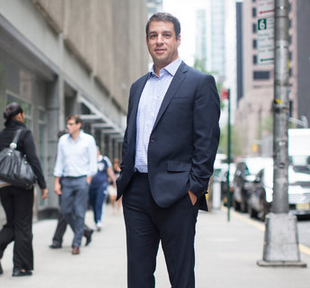
HOW FREE SOFTWARE INFLUENCES CHANGE
Swift: Speaking of free software, I know that you worked in the music industry for a while and so you can bring that perspective. And all of us have seen free software with Adobe and other firms. So, maybe we could just close with your thinking about free software, and what can we learn from the music industry? Lyon: Sure. I did spend about 10 years in the music industry, and, you know, I was really fortunate to see that industry at the beginning of a really big cycle of change from the late 90s, through the 2000s. What we saw going on in the music industry was essentially the upending of an archaic distribution model – where the record companies controlled the actual physical products that were delivering the content to the end user. Record companies were making all their money not on the content, but on the actual CD (or record or tape) that they were selling. Of course, those record companies didn't want to let go of it. We saw the emergence of MP3s come into the market – and eventually streaming music. And within a really short period of time, streaming music sales overtook the sales of CDs and really upended the industry. What happened in between was that all of the innovation was there, and there was a massive contraction in music industry revenue globally. I think in the late 90s it was it was about a 35 billion dollar-a-year global industry. Then from the late 90s to I think about 2008, that revenue got chopped in half because no one was buying CDs anymore. It took them about another 10 years to actually see any type of double-digit, year-over-year growth. That's something I'm seeing that's happening in our industry right now. We're just in the first or second inning of that, but we're seeing fee compression. We're seeing institutions and service providers in our industry looking to make money in different ways. Some institutions are more resistant to change than others. We're still seeing the “40 basis points” overlay fee for TAMP services still out there. I don't think that any of those types of models are really that sustainable. We're actually seeing a lot of the same things that we saw in the music industry around technology innovation. New players coming into the space, segmenting out services that were typically part of the portfolio of some of the bigger banks and some of the bigger financial institutions. So, I think that it's a really exciting time to be an independent advisor because they are really at the forefront of all of these types of opportunities. There are some things that are being done with the larger wirehouses, but they're just not going to be able to be as nimble and able to pivot as quickly as I think a lot of the independent advisors will be able to. THE CULTURE OF ORANJ Swift: So last question, I've been to your office in Chicago and it's a really fun space, and recently your firm won an award for one of the best places to work in fintech. So, could you just share a little bit about how you keep your team motivated? How big is your team? Why did you pick Chicago? How do you get such good people to work for you? Lyon: Those are all great questions. I think right now we're 41 employees. We're based in Chicago because that's where we live, that's where my family is. And Chicago has a lot of history within the investment industry. I think aside from New York, Chicago probably has the second largest presence in the investment industry in the United States. We have the CME Group here, the Chicago Board of Trade, and we have other great companies that have started within this industry, and grown up to be big powerhouses in the industry as well. So, there's a lot of really great talent in Chicago, and I couldn't imagine running our business anywhere else. I think as far as our team, it's a snowball effect. Right now, we're still a small team but I consider everybody here to be leaders. The more that you empower leadership within your organization the more ownership that people take. Everybody here is a recruiter. We all want to work with like-minded people that share the same vision, the same mission of building and growing something, and in solving real problems. I think that's ultimately what brings us all together. The atmosphere and culture at Oranj is very flat. There's really no hierarchy within our organization. There's not a meeting that takes place at our company (regardless of the department that they work for) that people can't attend. Every Tuesday we have a showcase where our development team reveals the new software that we're shipping that week. We ship software every week every, Tuesday evening. And everyone from our accounting manager across the whole organization attends that showcase meeting. Everybody knows what's going on. I think that has created a culture here that everybody really enjoys. And we like to have fun too. We like to share things that are important to us within the within the company. Something that we started a couple years ago was playing vinyl records a couple days a week. It's nice to play music in the office, but more importantly, it's an opportunity to bond with employees. It’s an opportunity for employees to share music that they love and that they’re passionate about – and it's a good time. We have a great group of people, and I think we've been able to grow that through more of a family atmosphere. There are no walls up (literally or figuratively) between different departments in our organization. Everybody is a part of everything that we do here. Swift: David, thank you so much for being here with me today. I've learned so much just dialoguing about the challenges and opportunities for financial advisors and I'm looking forward to seeing you again at a future conference and to visiting Oranj in the future. Lyon: Well, thank you so much Marie. This was this is a lot of fun and always a pleasure to talk with you. Swift: Alright. Thanks again. Bye everybody. Click below to watch a short video where David Lyon talks about what we can learn from the music industry. Comments are closed.
|
About
|
|
Stay Connected
|
Phone: 913-649-5009
©2023 Impact Communications, Inc.
|


